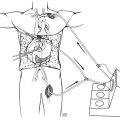Choosing the right medical alert system is a crucial decision, especially for those who want to ensure the safety and independence of their elderly loved ones. This article will guide you through the process of selecting a medical alert system, focusing on the key features and factors to consider.
Understanding Medical Alerts
Medical alert systems are devices designed to signal for help in an emergency. These systems can be lifesavers, providing immediate assistance and peace of mind for users and their families. They typically come in the form of wearable devices, such as pendants or bracelets, and are equipped with a button that, when pressed, connects the user to a monitoring center or directly to emergency services.
Brand Reviews of Medical Alert Systems
When selecting a medical alert system, it’s essential to consider brand reviews. These reviews provide insight into the reliability, customer service, and overall satisfaction with the medical alert system. Reading reviews from other users can help you understand the pros and cons of different brands and make a more informed decision.
Key Features to Consider
Here are the main features to evaluate when choosing a medical alert system:
1. Monitoring Services
The quality of the monitoring service is one of the most critical aspects of a medical alert system. Some systems connect you to a monitoring center with trained operators who can dispatch emergency services, contact family members, or provide assistance. Ensure the monitoring center is available 24/7 and has a reputation for quick response times.
2. Device Range and Mobility
Consider whether the user spends most of their time at home or if they are frequently out and about. In-home systems typically have a base station that connects to a wearable device, with a limited range. Mobile systems, on the other hand, use cellular networks and GPS technology, allowing users to call for help from virtually anywhere.
3. Battery Life
Battery life is an important consideration, as it determines how often the device needs to be charged. Look for systems with long battery life to ensure the device is always operational.
4. Waterproofing
Medical alert devices should be waterproof, as many falls and accidents happen in the bathroom. Ensure the device can be worn while showering or bathing.
5. Ease of Use
The device should be easy to use, with a straightforward setup and a simple button press to call for help. Complicated devices may deter use, particularly among seniors who may not be tech-savvy.
6. Customer Support
Good customer support is essential for addressing any issues or questions that may arise. Look for brands with positive feedback on their customer service.
Comparing Costs
Medical alert systems come with various pricing structures. Some charge an upfront fee for the equipment, while others operate on a monthly subscription model. Be sure to understand all the costs involved, including any additional fees for extra features or services.
Common Costs to Consider:
- Initial Equipment Cost: The price of the device itself.
- Monthly Monitoring Fee: Ongoing costs for the monitoring service.
- Activation Fees: One-time fees to activate the service.
- Additional Features: Costs for extras like fall detection or GPS tracking.
Evaluating Medical Alert Systems
To help you choose the best medical alert system, here is a list of factors to consider and questions to ask:
- Reliability and Range: Does the system work reliably throughout the home and outside? What is the range of the device from the base station?
- Response Time: How quickly does the monitoring center respond to an emergency call?
- Customer Reviews: What do other users say about the system in terms of reliability and customer service?
- Ease of Use: Is the device easy to set up and use? Are the instructions clear?
- Battery Life: How long does the battery last, and how is it recharged?
- Waterproofing: Is the device waterproof and suitable for use in the shower or bath?
- Cost: What are the total costs, including equipment, monitoring fees, and any additional charges?
- Extra Features: Are there additional features such as fall detection or GPS tracking, and are they necessary for your needs?
- Contract Terms: Are there long-term contracts or cancellation fees?
Making the Final Decision
Once you have gathered all the necessary information and compared different medical alert systems based on the factors above, it’s time to make your final decision. As an expert, I recommend prioritizing the specific needs and lifestyle of the user. For instance, if the user is active and spends a lot of time outdoors, a mobile system with GPS might be the best choice. For those who primarily stay at home, an in-home system with a reliable range and fall detection could be more suitable.
Final Checklist:
- Confirm the reliability and range of the system.
- Check the response time and customer service quality.
- Ensure the device is easy to use and maintain.
- Evaluate the total cost and compare it with your budget.
By carefully considering these aspects and reading brand reviews for medical alert systems, you can choose a system that offers the best protection and peace of mind for your loved ones.
Conclusion
Selecting the right medical alert system requires careful consideration of various features, costs, and user needs. By focusing on the key aspects such as monitoring services, device range, fall detection, battery life, and customer support, and by paying close attention to brand reviews and feedback. Remember, the primary goal is to ensure the safety and independence of the user, providing both them and their family with peace of mind.




